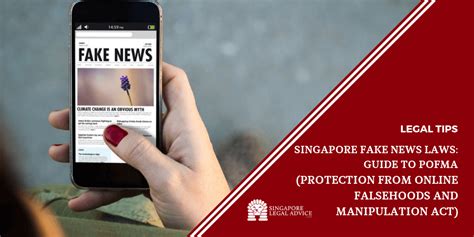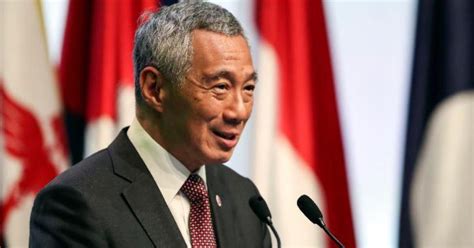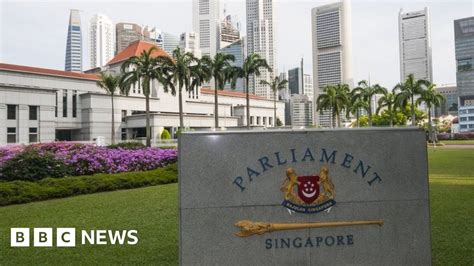human rights watch singapore fake news | Singapore passes controversial law to counter foreign interference human rights watch singapore fake news (Bangkok) – Singapore ’s government further restricted free expression and peaceful assembly in the city-state in 2020, Human Rights Watch said today in its World Report 2021. We would like to show you a description here but the site won’t allow us.
0 · Singapore: ‘Fake News’ Law Curtails Speech
1 · Singapore: a fake news law which is actually very bad news
2 · Singapore: Reject Sweeping ‘Fake News’ Bill
3 · Singapore passes controversial law to counter foreign interference
4 · Singapore fake news law polices chats and online platforms
5 · Singapore fake news law polices chats and online platforms
6 · Singapore fake news law a ‘disaster’ for freedom of speech
7 · Protection from Online Falsehoods and Manipulation Act 2019
8 · Human Rights Watch declines Singapore's invite to 'fake news'
9 · Human Rights Watch 'biased' and 'untruthful': Singapore
Conveniently located in Las Vegas, Elara by Hilton Grand Vacations offers air-conditioned rooms with free WiFi, free private parking and room service. Less than 1 km from Eiffel Tower at Paris Hotel and a 12-minute walk from Crystals Shopping Center, the property features a restaurant and a bar.
(Bangkok) – Singapore ’s government further restricted free expression and peaceful assembly in the city-state in 2020, Human Rights Watch said today in its World Report 2021. Singapore’s proposed law on “online falsehoods” is sweepingly broad and threatens to stifle discussion on websites worldwide, Human Rights Watch said. Singapore on Friday slammed Human Rights Watch for a "pattern of issuing biased and untruthful statements" about the city-state as the government mulled new laws to fight fake news.Singapore has passed a controversial law aimed at countering foreign interference in domestic affairs, in a move that critics say could be used to stifle dissent. It allows authorities to order.
Singapore has passed a controversial anti-fake news law that gives authorities sweeping powers to police online platforms and even private chat groups. Human Rights Watch declined on Friday an invitation from Singapore to give evidence at a public hearing on "fake news", saying the hearing was not a "true consultation" but a "media. Singapore’s parliament has passed legislation against “fake news”, a move that has been criticised by rights groups, journalists and tech firms over fears it could be used to clamp down on. Human Rights Watch was also critical, its deputy Asia director Phil Robertson describing the apparent concern for “online falsehoods” and alleged election manipulation as “farcical”. He also said:
The Protection from Online Falsehoods and Manipulation Act 2019, commonly abbreviated as POFMA and known colloquially as Fake News Law, [2] is a statute of the Parliament of Singapore that enables authorities to tackle the spread of fake news or false information. Singapore has passed a controversial anti-fake news law that gives authorities sweeping powers to police online platforms and even private chat groups. (Bangkok) – Singapore ’s government further restricted free expression and peaceful assembly in the city-state in 2020, Human Rights Watch said today in its World Report 2021.
Singapore’s proposed law on “online falsehoods” is sweepingly broad and threatens to stifle discussion on websites worldwide, Human Rights Watch said. Singapore on Friday slammed Human Rights Watch for a "pattern of issuing biased and untruthful statements" about the city-state as the government mulled new laws to fight fake news.Singapore has passed a controversial law aimed at countering foreign interference in domestic affairs, in a move that critics say could be used to stifle dissent. It allows authorities to order.
Singapore has passed a controversial anti-fake news law that gives authorities sweeping powers to police online platforms and even private chat groups. Human Rights Watch declined on Friday an invitation from Singapore to give evidence at a public hearing on "fake news", saying the hearing was not a "true consultation" but a "media. Singapore’s parliament has passed legislation against “fake news”, a move that has been criticised by rights groups, journalists and tech firms over fears it could be used to clamp down on. Human Rights Watch was also critical, its deputy Asia director Phil Robertson describing the apparent concern for “online falsehoods” and alleged election manipulation as “farcical”. He also said:

Singapore: ‘Fake News’ Law Curtails Speech
The Protection from Online Falsehoods and Manipulation Act 2019, commonly abbreviated as POFMA and known colloquially as Fake News Law, [2] is a statute of the Parliament of Singapore that enables authorities to tackle the spread of fake news or false information. Singapore has passed a controversial anti-fake news law that gives authorities sweeping powers to police online platforms and even private chat groups. (Bangkok) – Singapore ’s government further restricted free expression and peaceful assembly in the city-state in 2020, Human Rights Watch said today in its World Report 2021. Singapore’s proposed law on “online falsehoods” is sweepingly broad and threatens to stifle discussion on websites worldwide, Human Rights Watch said.
Singapore on Friday slammed Human Rights Watch for a "pattern of issuing biased and untruthful statements" about the city-state as the government mulled new laws to fight fake news.
Singapore has passed a controversial law aimed at countering foreign interference in domestic affairs, in a move that critics say could be used to stifle dissent. It allows authorities to order.
Singapore has passed a controversial anti-fake news law that gives authorities sweeping powers to police online platforms and even private chat groups. Human Rights Watch declined on Friday an invitation from Singapore to give evidence at a public hearing on "fake news", saying the hearing was not a "true consultation" but a "media.
Singapore’s parliament has passed legislation against “fake news”, a move that has been criticised by rights groups, journalists and tech firms over fears it could be used to clamp down on. Human Rights Watch was also critical, its deputy Asia director Phil Robertson describing the apparent concern for “online falsehoods” and alleged election manipulation as “farcical”. He also said:

The Protection from Online Falsehoods and Manipulation Act 2019, commonly abbreviated as POFMA and known colloquially as Fake News Law, [2] is a statute of the Parliament of Singapore that enables authorities to tackle the spread of fake news or false information.

orecchini di gucci a forma di g

Singapore: a fake news law which is actually very bad news
55 talking about this. EDU provides the highest quality O-Level and Information Technology courses at the best prices.
human rights watch singapore fake news|Singapore passes controversial law to counter foreign interference




























